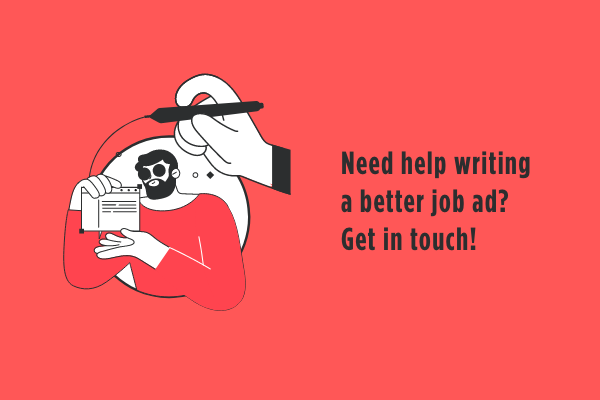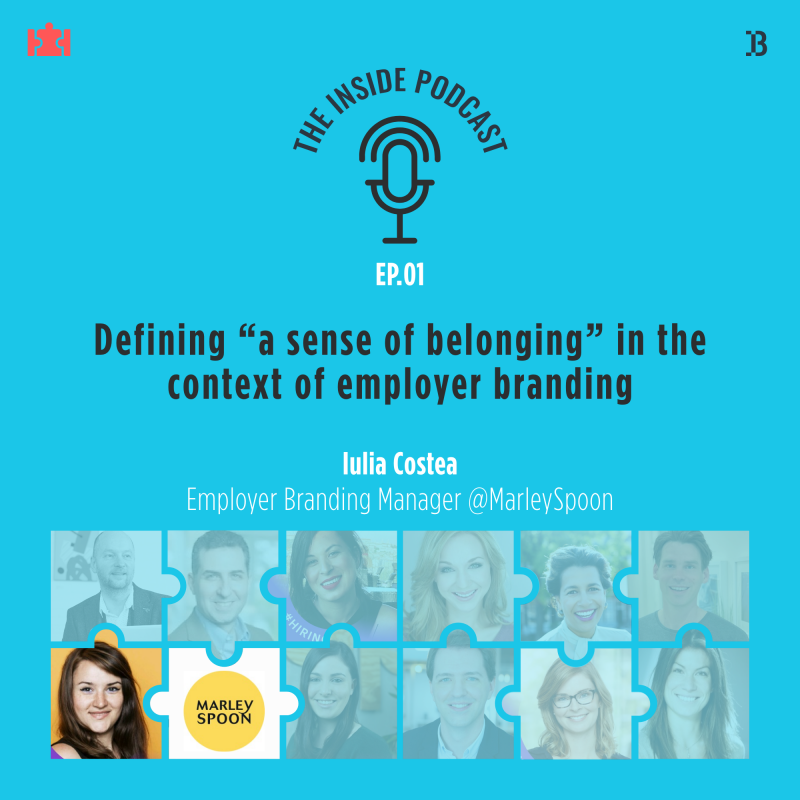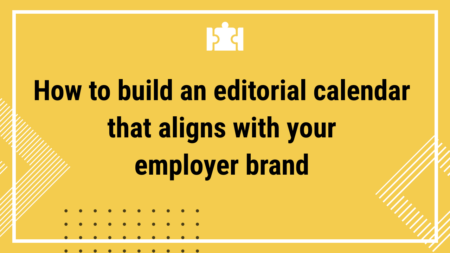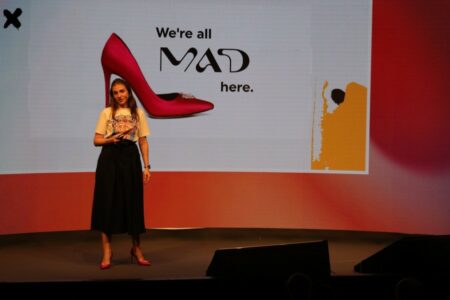Overview
Season 3 of EmployerBranding: The Inside Podcast is out now! To keep things interesting, we’ve started exploring a slightly different format centered around one topic. Today’s discussion was about belonging. What does it mean to have “a sense of belonging” in the context of employer branding? We debated the concept with Iulia Costea, Employer Branding Manager at Marley Spoon, and we found out that there’s a deep connection between employee engagement, company culture, and belonging. Tune it to learn more!
What you’ll learn by listening
- “A sense of belonging”, what it is in the context of employer branding
- What defines a successful culture
- Differences between work-life balance, work-life overlap, and work-life integration
- The importance of giving, receiving, and implementing feedback
- Understanding the connection between engagement and a sense of belonging
About the company
Marley Spoon makes it easy to cook a delicious meal at home by sending tasty recipes and fresh ingredients directly to your door. With Marley Spoon, you’re in control—you decide what to eat, when to eat, and with how many. Leave behind the hassle of grocery shopping, say goodbye to food waste, and fall in love with cooking all over again!
Podcast link
Podcast transcription – Enjoy listening to S03Ep01 of The Inside Podcast!
Georgiana: Hi, everyone! This is Georgiana and you’re listening to Employer Branding: The Inside Podcast. And today I’m speaking to one of my previous guests on this podcast. One of the first ones actually, her name is Iulia Costea, and she works for Marley Spoon. The last time we spoke Iulia was a Talent Acquisition Manager. Now she’s an employer branding manager. Welcome, Iulia! So good to talk to you again.
Iulia Costea: Thank you, Georgiana. Happy to be back!
Georgiana: What’s important to know, before we start our discussion, is that today I’m actually exploring sort of a new format for this podcast, in which we settle on a certain topic; a topic that has to do with employer branding, or company culture or human resources in general. And then we start to debate it among the two of us.
The format is basically the same at its core, so to say. We’re still going to have questions and answers, but they are all going to revolve around the same topic. Today, I suggested to you earlier that we concentrate on “belonging”, because it’s a topic that people talk about massively. It’s a topic that’s very recurring in all Employer Branding discussions. It’s quite a large topic and quite a narrow one, if you decide to really focus on it, and to apply it to the company you work in.
It’s something new that we’re trying, we’re looking forward to your feedback, and to hearing if it’s useful for you guys. And before I reached out to Iulia with this suggestion, I read Daniel Coyle’s book, which is called The Culture Code. This is how I got the idea for the “belonging” topic, actually his book sparked my curiosity and my interest for it. And I will start my discussion by giving a definition by Gartner, which says that “a sense of belonging” is actually an employee’s perception of acceptance within a given group. Also, when doing my research about this context and about this concept, actually, I came across an article from Deloitte, which was mentioning comfort, connection and contribution at work as being in very, very close connection with belonging.
And so, having all this in mind, I’m going to launch the question, the first question to Iulia and to ask her what defines a successful culture? What does it mean to you personally? And what does it mean for Marley Spoon?
Iulia Costea: Right, we’re starting with a very, very big question. And indeed, maybe I should anchor myself a little bit into the whole idea of work and how work is perceived nowadays. So if we’re looking probably 10 years ago, everyone will talk about work-life balance, work life balance everywhere, then it kind of transitioned into a work-life overlap. But what’s happening now is more of a work-life integration.
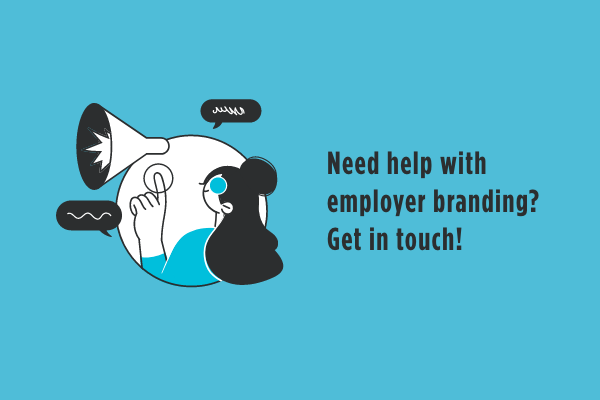
So people don’t separate work from their lives anymore – especially what happened over the last two years with the pandemic – we realise that work is part of our lives, not just from nine to five, but way, way more after, as well. So it’s more and more difficult for companies to accommodate the fact that people want to feel this, this happiness at work that they belong to, they make an impact. So it’s not just about coming to work and doing your job, but having all of these additional things. You know, as you also mentioned, comfort, contribution, but then way more than that belonging, purpose, impact.
So a successful company culture nowadays is hard to describe in a short podcast, and pretty much depends on the industry or the expectations of the employees. But ultimately, it’s a culture that offers belonging, right, because that’s what we’re talking about today. And then I can also stimulate purpose and impact and by having purpose and impact, you can also feel the sense of achievement, and also a culture that can strike a balance between individual work and individual purpose, in the company and your work. Integration, purpose – organisational purpose – so not to separate the impact that the company can create versus the impact that the employee can create.
Georgiana: And how does this happen at Marley Spoon? In concrete, how do you guys in the employer branding department or in the HR department manage to create it? With leadership, of course.
Iulia Costea: Right. So we always said we had a parade culture – warm and welcoming. So we are building the EVP at the moment. And the five values that we have at Marley, which we think are really making a difference. We are intrapreneurs, we enjoy what we do, we act with integrity, we’re ambitious, and we are team players. I know this might sound too generic, but each of these values has further principles, but ultimately, is a mix of trust, autonomy that we give to people to come up with ideas, to challenge the status quo, but also, while delighting each other on the way.
So the customer, yes, is the most important, we have to delight our customers. But we can’t delight the customers without delighting each other on the way so that’s very important for us, to foster and to build relationships so that we, together, as a team, can conquer and can satisfy that customer.
Georgiana: That’s right, you were mentioning the importance of being a team player. Right. And this brings me back to what Daniel Coyle was discussing in his book, the concept of “magical feedback”, which always ensures that the person who receives the feedback feels that they are part of the group, on the one hand, that they understand the group is special, and that there are high standards there. And also, that they are aware they can reach those standards. So having all this in mind, how important is feedback in your team at Marley Spoon and for you personally?
IuliaCostea: Yes, feedback is very important indeed, for me, and for Marley Spoon as well. And first of all, I would also like to mention the fact that it’s very important to know how to give feedback, but equally important to know how to receive feedback. So people have to be open to it, aware and to also be willing to grow and to receive this feedback.
And next up, also, I think this is a more of a general rule that can be also brought into the work context. Feedback is, of course, positive and constructive. But we can’t just be giving constructive feedback, because yes, that’s very powerful, that helps the most, but in order for the constructive feedback to work, it has to always be balanced with positive feedback.
So that means little appraisals and feedback and positive notes that we can exchange with colleagues on a regular basis. So five positive feedbacks should equal one constructive feedback. That does not have to be given in a sandwich approach, I think that’s not necessarily relevant. If you want to be constructive, start with something positive, and then end with something positive, no, because that would dilute the message of the constructive piece. But then if on a regular basis, constantly, we give positive feedback, and we appraise people every time, you know, something good happened that impacted the team, we have to let them know.
And then when the time comes that it’s constructive feedback to be given, it’s much easier to give and to receive and to digest. So it has to come very naturally and people can be very open and transparent on a regular basis. And for feedback itself to be productive and effective.
Georgiana: That actually reminds me of a process that was happening at Netflix, at some point. I don’t know if they’re still doing it or not. But I found it really, really genius. So once a year, I think each company member would have to give feedback in writing. I don’t remember if to all of the colleagues or at least the people they were working closely with. And the feedback had to be indeed very constructive.
So there was a certain way of delivering it, but still keeping in mind everything that a person needed to change within the team. So I think this is super important. It’s very, very important for organisations to understand that once they approach feedback in a very structured way, I think there’s a lot to gain for leadership and for of course the entire organisational culture, overall.
Iulia Costea: Exactly. And you’ve also mentioned something at the very beginning about standards. And indeed, I think, by creating a framework, it would again help with the giving and receiving feedback. And especially when I’m looking at maybe mentors, coaches, teammates that have to give feedback on a regular basis, it’s actually part of their daily life.

It’s important for them to follow these four steps approach, they have to make sure that people understand those standards are high. So we have high standards. That’s why we want everyone to do well, and then to also assure the people, the teams that you can do this, you’ve got this. And then, by also giving direction and support. So with high standards for assurance, giving direction and support, it’s way easier to share feedback and to help your teams grow through that feedback. But you can’t isolate the feedback, you can’t take it out of a framework.
Georgiana: Or out of context. That’s true. Iulia, do you think there’s a link between engagement and belonging? And if there is – which I’m sure there is – but I just want to hear your personal opinion on it. How do we create this connection between the two? And how do we maintain it?
IuliaCostea: Yeah, there’s definitely a link. I don’t think you can probably separate the two. And I read a study recently, I don’t remember where but I just remember the numbers. So people, if they have the purpose, and belonging, they can reach up to 80% of their potential; if they only have the passion, that ends up to probably 20%. So passion without purpose is not much, but if you pair these two, it’s a very powerful tool. So of course, having purpose and belonging creates engagement, and that engagement, and that motivation, ultimately impacts the business and the growth. And you cannot really be engaged, if you don’t feel like you belong, if you don’t find your purpose.
Georgiana: That’s true. And, you know, when I was doing my research for this episode, I came across something very interesting, in Shane Snow’s book, Dream Teams. Shane Snow is one of the cofounders of Contently, a company that I really admire and follow on a regular basis. And Shane was saying that positive social encounters release oxytocin, right things like hugs, acts of kindness. And basically, it’s this oxytocin that helps build relationships between people who are different, even between people who are not inclined to accept each other.
But I think in the context of the entire pandemic, and in the context where so many companies are embracing completely remote work, I think purpose is going to be the key to maintaining a company culture. Because for sure, the encounters are going to be positive on a constant basis, but they’re not going to be as intense as when everyone was in the office, right?
Iulia Costea: I agree. And that’s also what we’re doing at Marley Spoon and of course, we’ll be able to look back a few years from now, because the whole remote hybrid environment is new to everyone. Of course, we have these companies that have done remote work for a long time, even before the pandemic, but that’s just a handful of companies. Now Marley Spoon stepped into a hybrid approach, which means we allow people to decide whether they want to be in the office or work from home, they have the freedom and the flexibility to choose.
And for them to decide whether they need to be in the office, we created this three C framework – create, connect, collaborate – if you want to connect with your team, if you want to collaborate, the office is the place to be; you don’t want to do focus on work, you might want to stay at home. So it’s not like we have one or two days that we have to be in the office, we leave it up to the teams to decide what works best for them. And we also have a few people that are fully remote, working from different locations and countries. And for them we’re aiming to have them coming to the office once a quarter for a few days.
I understand that the freedom to work from home is very important. But as you said, though, the in-person encounters will still remain very important. You don’t have to see those people every day. But to meet on a regular basis, once a month, well, once every three months, might be very beneficial because ultimately yes, we’re social animals, we can’t really hide like this forever. We have to meet in person and relationships can be built differently by having the freedom to choose when, how and how often you do it. I think it’s very important nowadays.
Georgiana: And I’m sure we’ll be seeing much more of the companies in Berlin and in Germany and around the world going towards that strategy. You know, we’re heading towards the the end of our discussion, and I was wondering if there’s a place for data in this discussion about belonging, I know the people I’ve discussed with in employer branding and in HR, most of them struggle a lot with measuring Employer Branding, measuring these new concepts that are sort of hard to pin down. But how do we do it? Can we really pin belonging down? Can we really measure it in some way?
Iulia Costea: Yes, there are ways to measure it, as we know that for many organisations, data is very important. So everything we do, it has to be backed by data. But also, you know, data shows you the “what”, people tell you the “why”. And I think in especially such topics as “belonging”, we have to rely a lot more on qualitative data than on quantitative. So probably how we can best measure belonging is by attrition rates to newer and simple employee service ultimately, but to isolate belonging and to measure it might be hard.
So we have to integrate it with other other areas and to find a link, what can we link belonging to so we can measure it better, and there are tools. Perhaps tools to measure belonging in itself are hard to find, but I’m sure something will pop up in the very near future. But ultimately, we’re able to measure attrition, satisfaction at work; Employee NPS already tells us a lot about whether people think they belong where they work.
Georgiana: Absolutely. Oh, this is super interesting, Iulia. I really, really enjoyed our discussion. Thank you for being with me today and for talking to me and I look forward to talking again soon.
Iulia Costea: Always a pleasure. Thank you too, Georgiana and bye, bye.
This was Employer Branding: The Inside Podcast. You can find our podcasts on Spotify on Apple podcasts and content on employer branding-related things on employerbranding.tech. Until the next time, stay tuned.
